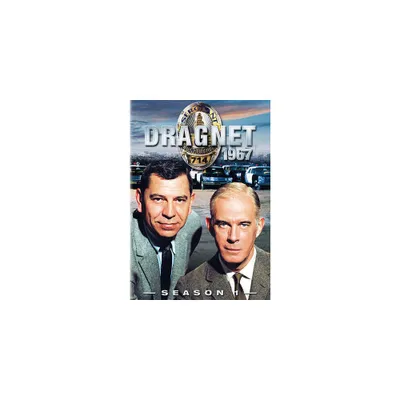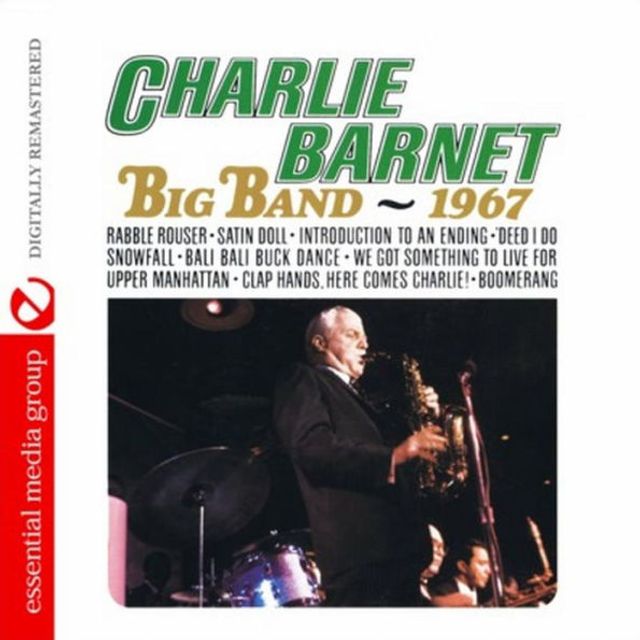Home
1967
Loading Inventory...
Barnes and Noble
1967
Current price: $12.99


Barnes and Noble
1967
Current price: $12.99
Loading Inventory...
Size: OS
*Product Information may vary - to confirm product availability, pricing, and additional information please contact Barnes and Noble
Betty Buckley
's
1967
looks at first glance like it might be some kind of deadpan joke: the album cover is a spot-on re-creation of a certain kind of graphic design cliche from the titular year, right down to
Buckley
's period dress and hairstyle and the extremely old-fashioned, prominently placed logo, complete with a "MONO" marking. The song list is a peculiar mix of
jazz standards
(
"They Can't Take That Away from Me,"
"My Funny Valentine,"
"When I Fall in Love,"
) and a few minor
pop
hits from the period (
Chris Montez
"Call Me,"
also popularized by
Astrud Gilberto
, and
the Monkees
'
"I Wanna Be Free"
). And, perhaps most tellingly, the producer credit is given to contemporary cross-genre superstar
T Bone Burnett
. But, no kidding, this really is
's debut album, recorded in 1967 but never properly released until 40 years later. The Fort Worth native was not quite 20 at the time, having almost won the Miss Texas pageant the year before but a couple years before she pulled up stakes and moved to Manhattan to become the toast of Broadway through her starring roles in shows like
1776
and
Cats
. And her fellow Fort Worth native
J. Henry Burnett
really did record and engineer these tracks, in the small studio in town that he owned and managed at the time. (This, incidentally, was around the same time that
Burnett
produced and played drums on the
Legendary Stardust Cowboy
"Paralyzed,"
which alone would have been enough to cement his musical credentials even if he'd never done anything else.) The 11 songs were clearly recorded quickly and either live or close to it:
is singing in front of a piano trio led by the unknown pianist
Charlie Baxter
, who provides simple supper-club arrangements that only draw attention to themselves on the unexpectedly discordant full stop that ends
"Call Me."
is clearly already a talented singer here, but it's undeniable that the shadow of
Barbra Streisand
looms large over her full-throated interpretations of these songs, which occasionally veer into bombast when a more subtle interpretation might have worked better. Of course,
is really nothing more than a quirky curio for fans of both
and '60s
vocal pop
, but it's certainly an entertaining listen. ~ Stewart Mason
's
1967
looks at first glance like it might be some kind of deadpan joke: the album cover is a spot-on re-creation of a certain kind of graphic design cliche from the titular year, right down to
Buckley
's period dress and hairstyle and the extremely old-fashioned, prominently placed logo, complete with a "MONO" marking. The song list is a peculiar mix of
jazz standards
(
"They Can't Take That Away from Me,"
"My Funny Valentine,"
"When I Fall in Love,"
) and a few minor
pop
hits from the period (
Chris Montez
"Call Me,"
also popularized by
Astrud Gilberto
, and
the Monkees
'
"I Wanna Be Free"
). And, perhaps most tellingly, the producer credit is given to contemporary cross-genre superstar
T Bone Burnett
. But, no kidding, this really is
's debut album, recorded in 1967 but never properly released until 40 years later. The Fort Worth native was not quite 20 at the time, having almost won the Miss Texas pageant the year before but a couple years before she pulled up stakes and moved to Manhattan to become the toast of Broadway through her starring roles in shows like
1776
and
Cats
. And her fellow Fort Worth native
J. Henry Burnett
really did record and engineer these tracks, in the small studio in town that he owned and managed at the time. (This, incidentally, was around the same time that
Burnett
produced and played drums on the
Legendary Stardust Cowboy
"Paralyzed,"
which alone would have been enough to cement his musical credentials even if he'd never done anything else.) The 11 songs were clearly recorded quickly and either live or close to it:
is singing in front of a piano trio led by the unknown pianist
Charlie Baxter
, who provides simple supper-club arrangements that only draw attention to themselves on the unexpectedly discordant full stop that ends
"Call Me."
is clearly already a talented singer here, but it's undeniable that the shadow of
Barbra Streisand
looms large over her full-throated interpretations of these songs, which occasionally veer into bombast when a more subtle interpretation might have worked better. Of course,
is really nothing more than a quirky curio for fans of both
and '60s
vocal pop
, but it's certainly an entertaining listen. ~ Stewart Mason


















